Are you considering asking for a salary increase but unsure how to approach the conversation? Crafting the right letter can make all the difference in effectively communicating your value to your employer. In this article, we'll walk you through a straightforward template that highlights your accomplishments and reasons for the request, ensuring you make a strong case. So grab a pen and paper, and let's dive into the essential elements of a compelling salary increase review letter!

Opening Statement
Many professionals seek a salary increase review to align compensation with industry standards and personal contributions. Employees often prepare a thorough presentation, highlighting achievements, market research, and specific salary benchmarks within similar roles. A well-structured approach can effectively communicate value to employers, demonstrating commitment and accomplishments that exceed current compensation. Addressing this topic strategically fosters constructive dialogue, ensuring that both parties discuss expectations and the future of professional development.
Justification and Achievements
A request for a salary increase review often hinges on concrete achievements and contributions to the organization. Over the past year, I have successfully completed three major projects, each improving efficiency by at least 20%, directly impacting our bottom line. My role as a project lead during the implementation of the new customer relationship management software resulted in a 30% increase in client satisfaction ratings. Additionally, I trained ten new employees, enhancing their onboarding experience and reducing training time by 25%. Current salary benchmarks in our industry highlight an average increase of 10% for similar positions with comparable responsibilities and performance metrics. These achievements, along with my commitment to our team and goals, substantiate my request for a salary review.
Market Comparisons
A salary increase review is often essential for ensuring employee retention and motivation within competitive industries. Many organizations, such as tech giants like Google and Apple, frequently assess their compensation structures to match or exceed market standards. Thorough market comparisons can indicate disparities in salaries for similar roles across various locations and companies. Research shows that software engineers with comparable experience in Silicon Valley often earn 15-20% more than their counterparts in less competitive regions. Conducting these comparisons can support arguments for adjusting salaries, leading to improved employee satisfaction, reduced turnover rates, and enhanced overall productivity within the organization.
Positive Impact
Implementing a salary increase review can significantly impact employee morale and productivity in various companies. A well-structured review process, which acknowledges individual performance and contributions, can enhance job satisfaction, motivating employees to maintain high performance levels. Research indicates that organizations that regularly assess compensation structures see a reduction in turnover rates, with some companies reporting decreases as high as 20% in annual turnover. Furthermore, the Association for Talent Development emphasizes that fair compensation is linked to improved employee engagement, leading to better team collaboration and innovative outputs. By investing in salary reviews, organizations like Google and Salesforce have demonstrated substantial returns on investment through increased loyalty and commitment from their workforce.
Closing and Gratitude
In requesting a salary increase review, employees should express sincere gratitude for current opportunities, acknowledging support from management and colleagues. Appreciation for professional growth and contributions to team success can be emphasized. Ending with a courteous closing statement reiterates commitment to the organization's goals and a willingness to discuss possibilities further. Such a conclusion fosters positive communication while laying the groundwork for potential negotiations regarding compensation adjustments.
Letter Template For Requesting Salary Increase Review Samples
Letter template of pay raise inquiry for job responsibilities enhancement
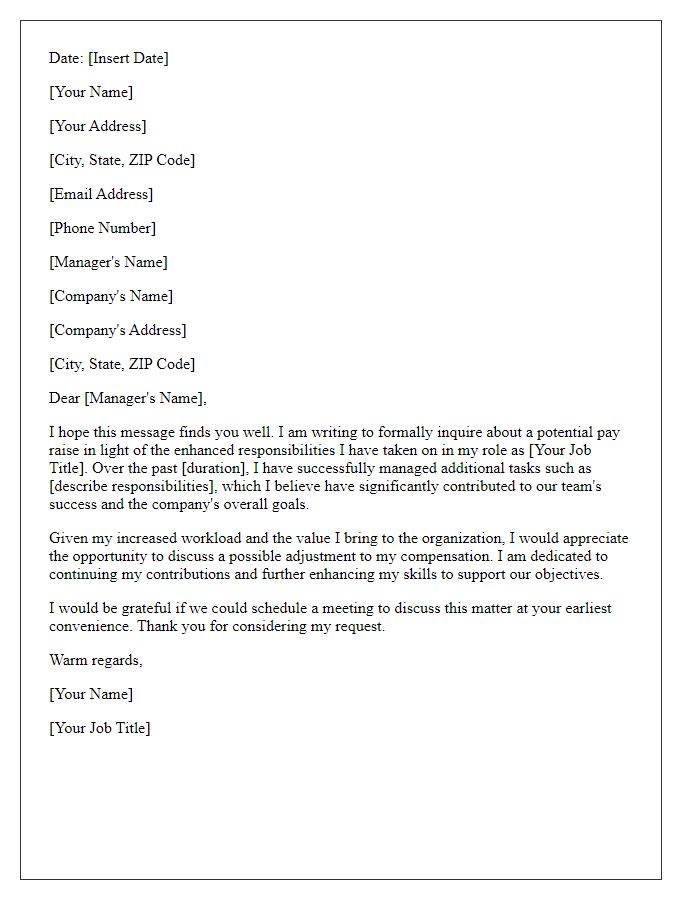
Letter template of wage increase petition following successful project completion
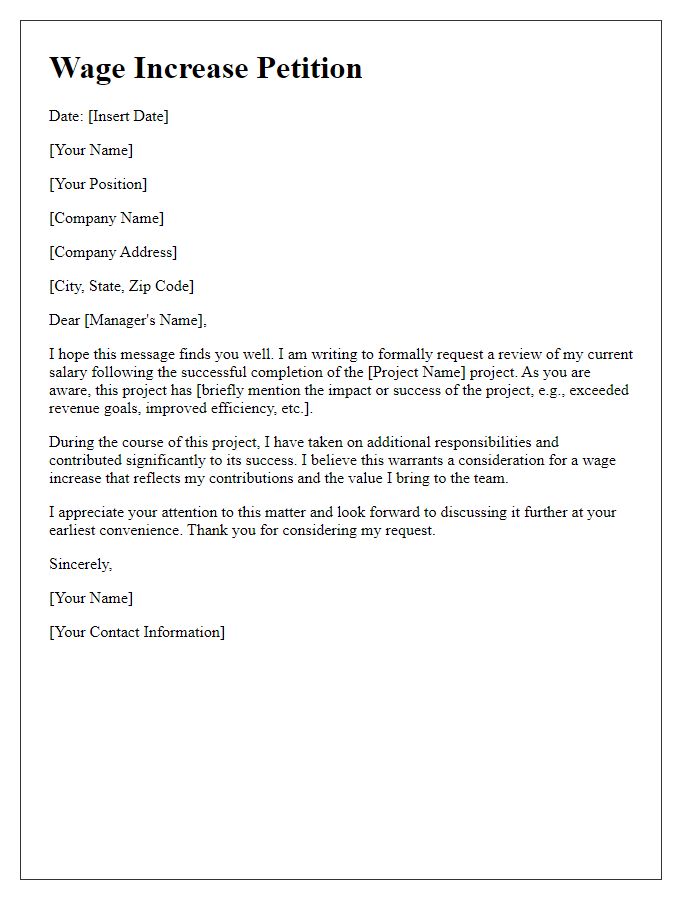
Letter template of compensation hike inquiry due to cost of living adjustments
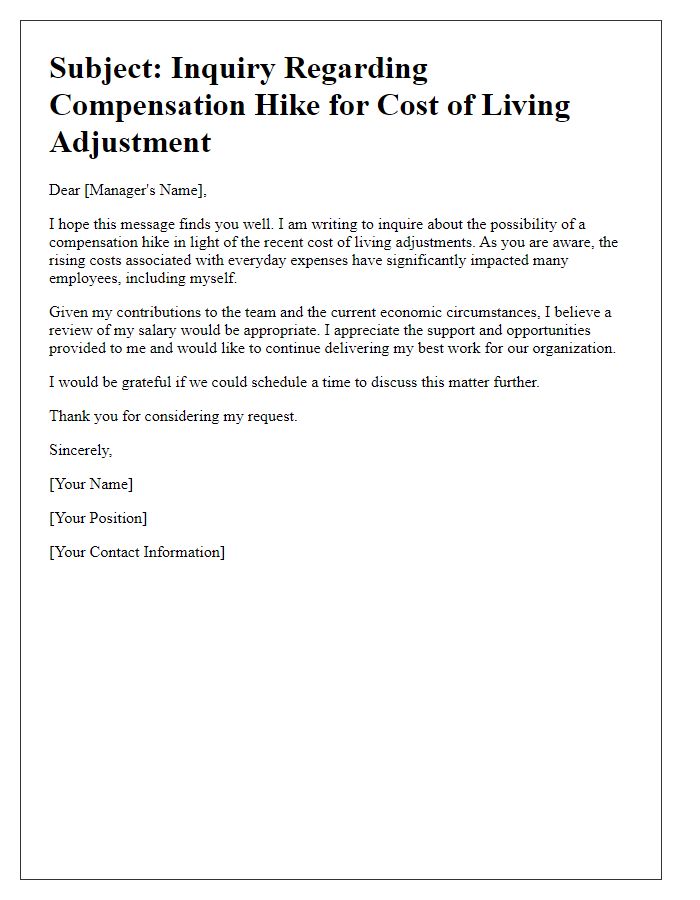

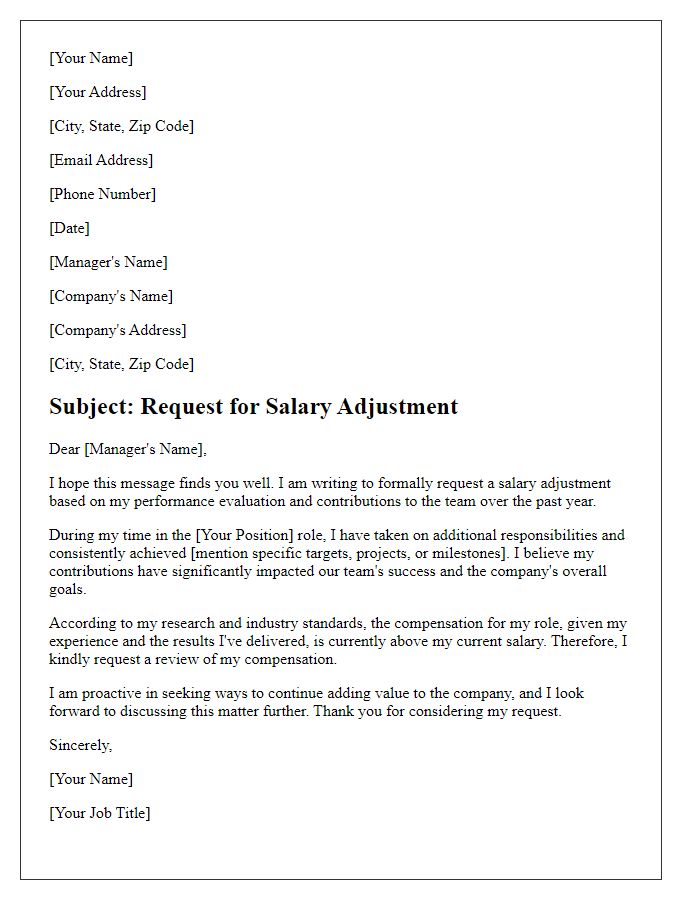
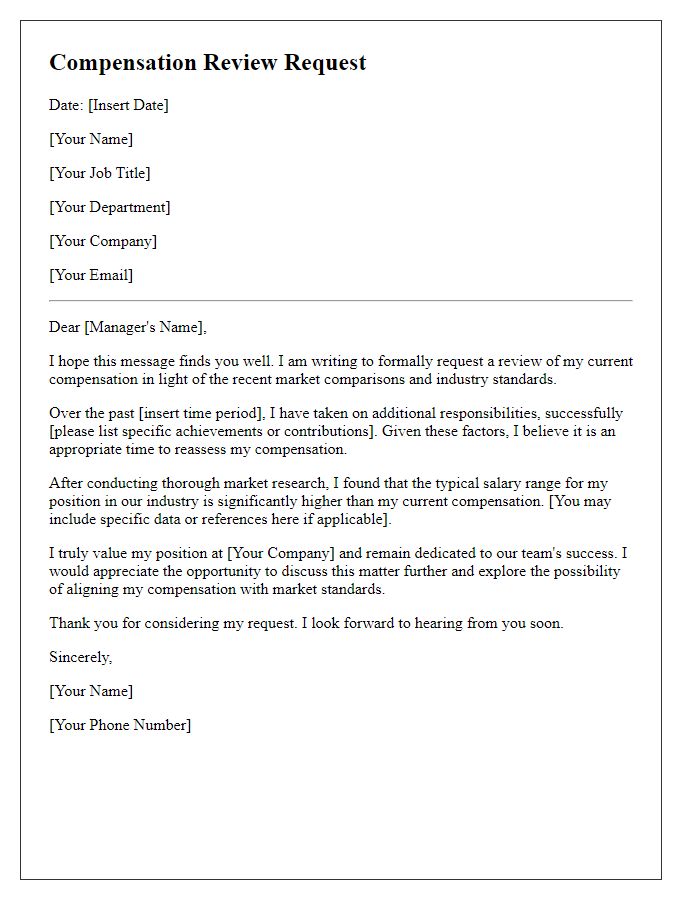
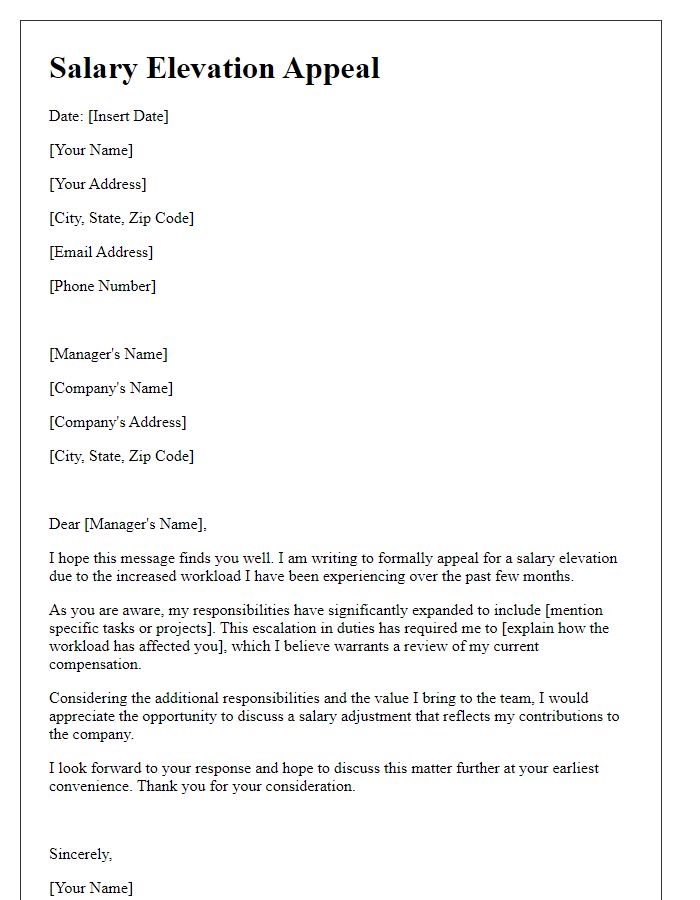
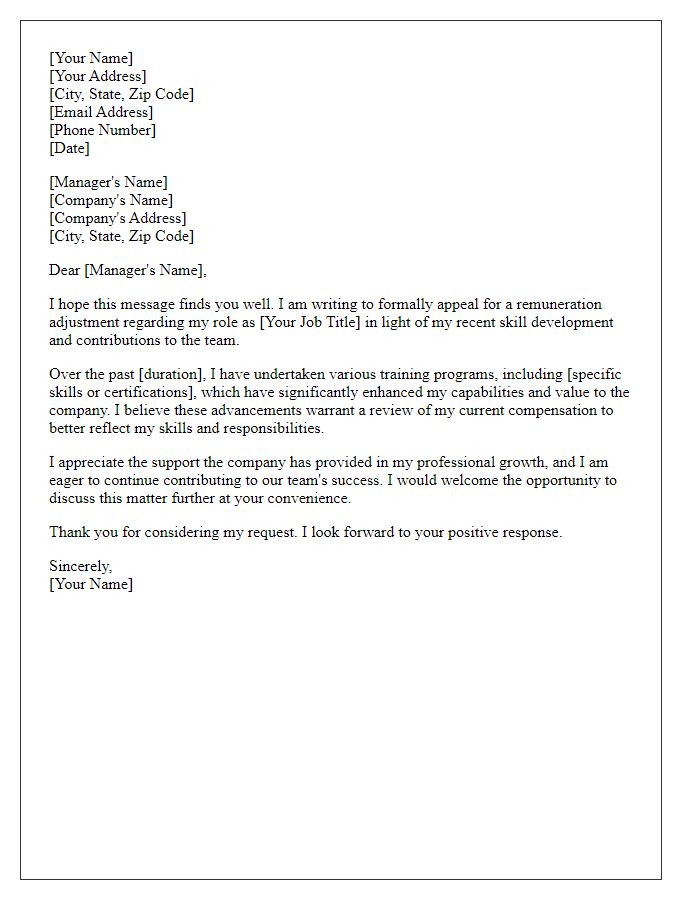
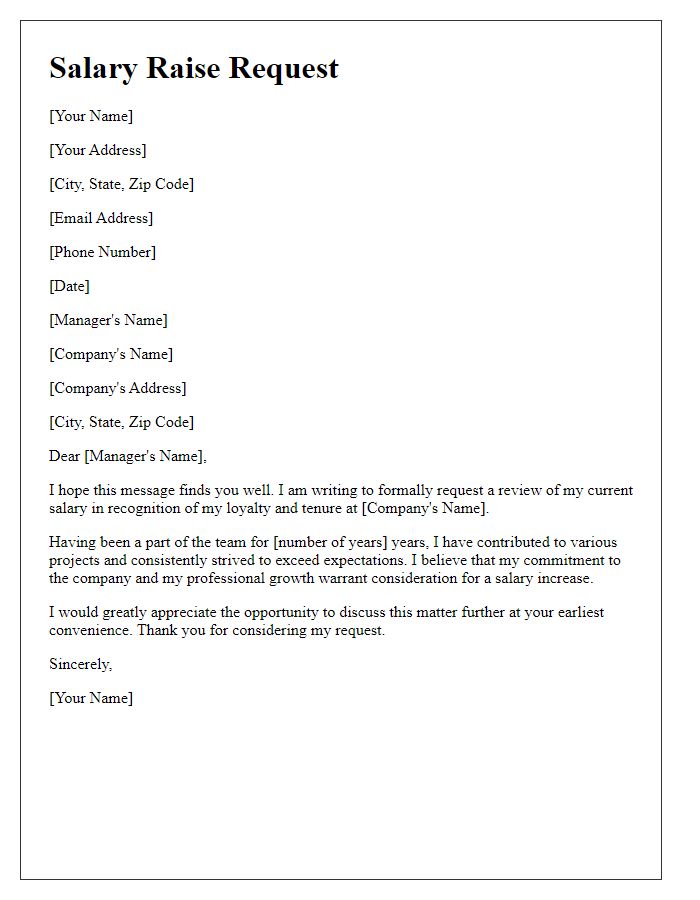
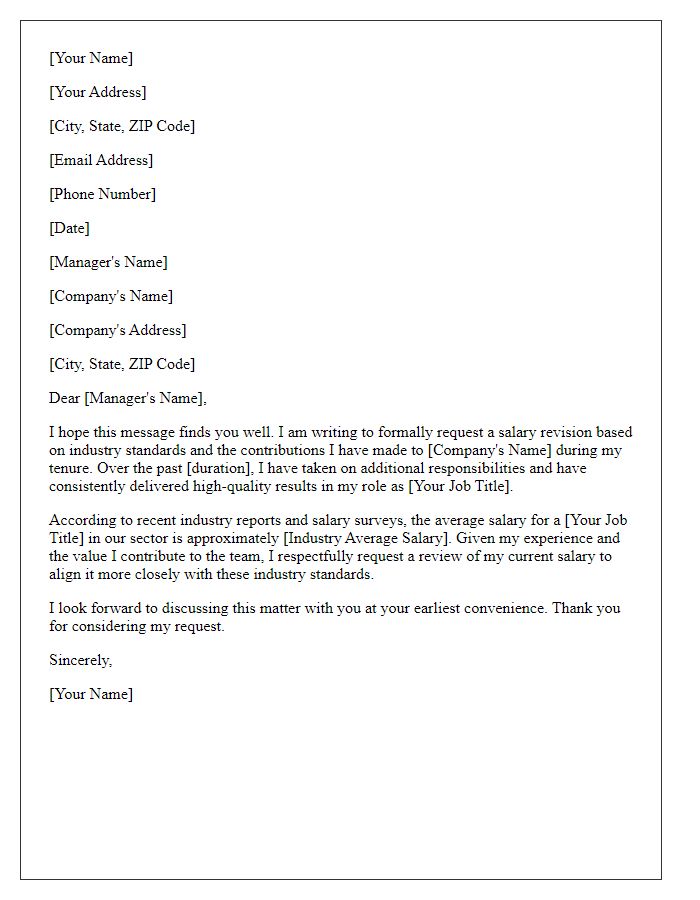
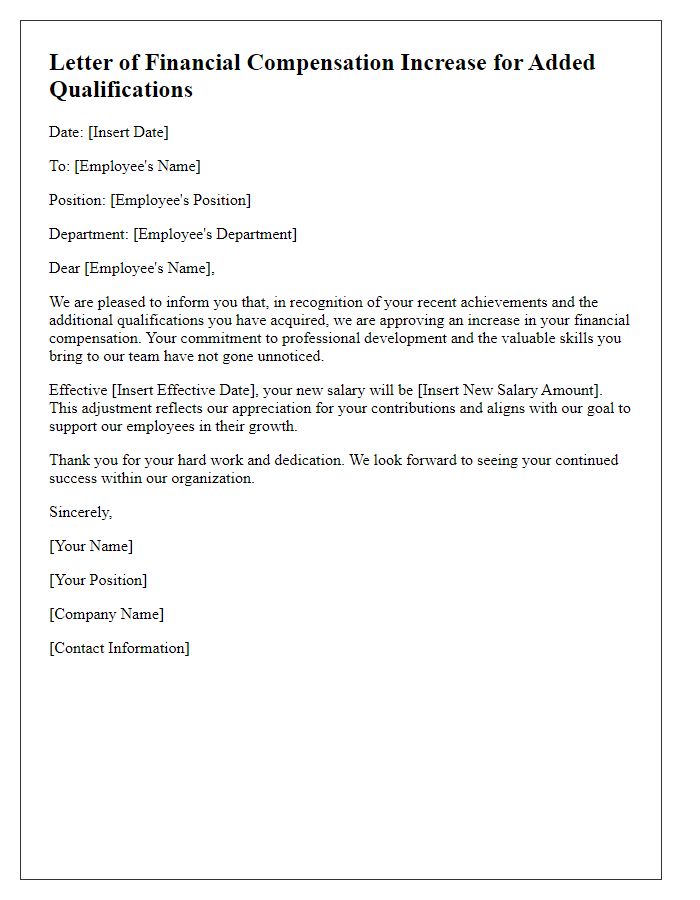


Comments